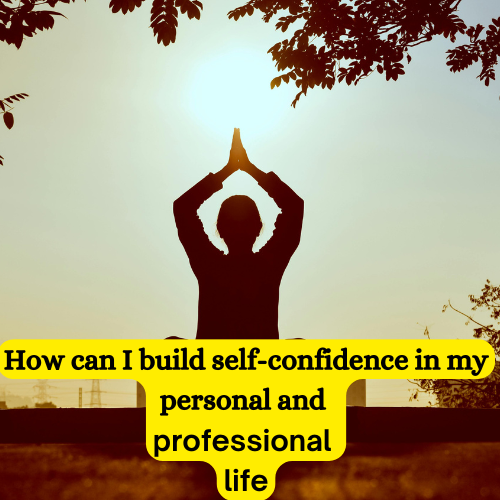Self-doubt affects many people, hindering personal growth and professional success. Studies indicate that around 70% of individuals experience at least one episode of self-doubt in their lives. Self-confidence, defined as trust in one’s abilities, is crucial for overcoming challenges and achieving goals. This article will present practical strategies to bolster self-confidence in both personal and professional settings.
Understanding Your Self-Doubt
Identifying the Roots of Insecurity
Low self-esteem often stems from various factors, including past failures, negative self-talk, and societal expectations. According to research, approximately 85% of people worldwide struggle with self-esteem issues at some point. Recognizing these roots is the first step in overcoming self-doubt.
Challenging Negative Thoughts
Reframing negative thoughts is key to building self-confidence. Techniques like cognitive restructuring can help shift your mindset. As Dr. Judith Beck stated, “Changing the way you think changes the way you feel.” Practice recognizing negative thoughts and replacing them with positive affirmations.
Recognizing Your Strengths and Achievements
Take time to identify your personal strengths and past successes. Journaling can be a helpful tool here. Consider these prompts:
- What are three things I’m proud of accomplishing?
- What skills do I possess that others often compliment?
- What challenges have I overcome in the past?
Setting Realistic Goals and Expectations
SMART Goal Setting
Utilizing SMART criteria can aid in setting effective goals. SMART stands for Specific, Measurable, Achievable, Relevant, and Time-bound. For instance, instead of saying, “I want to be fit,” a SMART goal would be, “I will exercise for 30 minutes, five times a week for the next three months.”
Breaking Down Large Goals
Large goals can feel overwhelming. Break them into smaller, manageable steps. Start with the first action. Visualization techniques can also help. Picture yourself achieving each step, making the process feel more achievable.
Celebrating Small Wins
Recognizing progress is essential. Celebrate small victories, no matter how minor they seem. This acknowledgment builds momentum and fuels self-confidence.
Building Positive Habits and Self-Care
Prioritizing Self-Care
Physical and mental well-being directly influence self-confidence. Prioritize self-care through these strategies:
- Regular exercise
- Mindfulness or meditation practices
- A balanced diet rich in nutrients
Cultivating a Growth Mindset
A growth mindset fosters resilience and a willingness to learn. According to psychologist Carol Dweck, “Individuals with a growth mindset see failures as opportunities to learn.” To develop this mindset, embrace challenges and seek feedback as tools for growth.
- Skills for the Future Level Up Your Life
- Future-Proof Your Career: 10 Skills to Master in 2025
- From Home Office to Big Profit: Top Remote Jobs That Pay Well
- 20 Side Hustles You Can Start Today to Make Money Online
- Freelance Your Way to Success: Top Online Gigs for Extra Income
- How to Turn Your Hobbies into an Income Stream Online
- Monetag: The Best Alternative to Google AdSense
- How to Start a Successful Blog That Actually Makes Money
- From Home Office to Big Profit: Top Remote Jobs That Pay Well
Stepping Outside Your Comfort Zone
Growth happens outside your comfort zone. Start with small challenges, gradually increasing the difficulty. Each step taken builds resilience and confidence.
Improving Your Communication and Social Skills
Assertiveness Training
Effective communication is vital. Learn assertiveness techniques to express your needs clearly. For example, use “I” statements, such as “I feel overwhelmed when…” This approach helps maintain respect while communicating boundaries.
Active Listening Skills
Active listening strengthens relationships and builds confidence. Focus on the speaker, avoid interruptions, and ask clarifying questions. Practicing this skill promotes understanding and connection.
Networking and Building Connections
Networking can enhance both personal and professional confidence. Attend events with the goal of making meaningful connections. Prepare a few conversation starters to facilitate dialogue.
Seeking Support and Professional Help
The Value of Social Support
Surround yourself with supportive individuals. A strong support network can uplift and encourage personal growth. Seek out friends, family, or mentors who reinforce your self-worth.
When to Seek Professional Help
Sometimes, professional support is beneficial. Signs include persistent feelings of unworthiness or difficulty managing daily tasks. Statistics show that nearly one in five adults will experience mental health issues each year.
Therapy and Counseling
Therapy can provide valuable tools for managing self-esteem. Different therapy types, such as cognitive-behavioral therapy (CBT), specifically address negative thinking patterns. As Dr. Marsha Linehan states, “Therapy is a collaborative process.”
Conclusion
Building self-confidence is a journey, not a destination. Key takeaways include identifying the roots of self-doubt, setting SMART goals, and recognizing achievements. Encourage yourself to implement these strategies today. Remember, self-improvement is a lifelong commitment, and every step taken will lead to greater confidence and success. Start your journey now.
